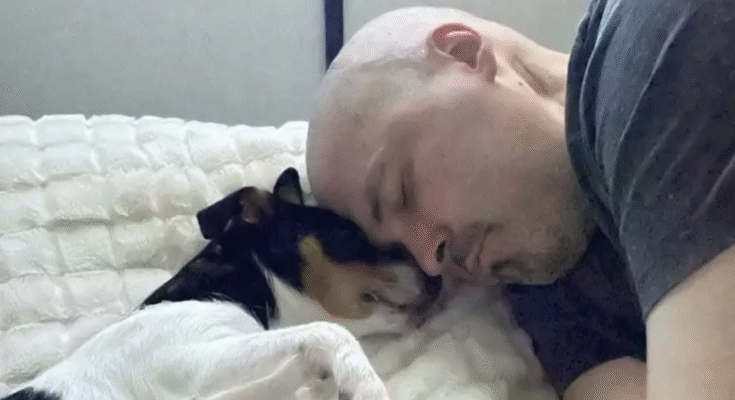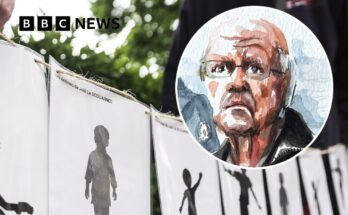Lauren Smith and her husband Stuart say their last chance relies on getting radical treatment in Israel
A deadly lump has wreaked havoc on their lives of a young couple for more than five years, with the pair only happening to catch it during a safety check.
Lauren Smith and her husband Stuart, from the UK, were on vacation and preparing to plunge down a zipline when the 30-year-old spotted something unusual on Stuart’s neck.
Lauren said she came across ‘a lump’ but brushed it off as ‘harmless at the time.’
“We agreed he’d get it checked out when we got home,” she added.
Stuart lived an active lifestyle, travelling internationally while working as an accountant and was deemed healthy.
Husband finds wife dead after failing to get reply from her
Now 40, however, and his family never dreamed they’d be making an urgent appeal to save his life.
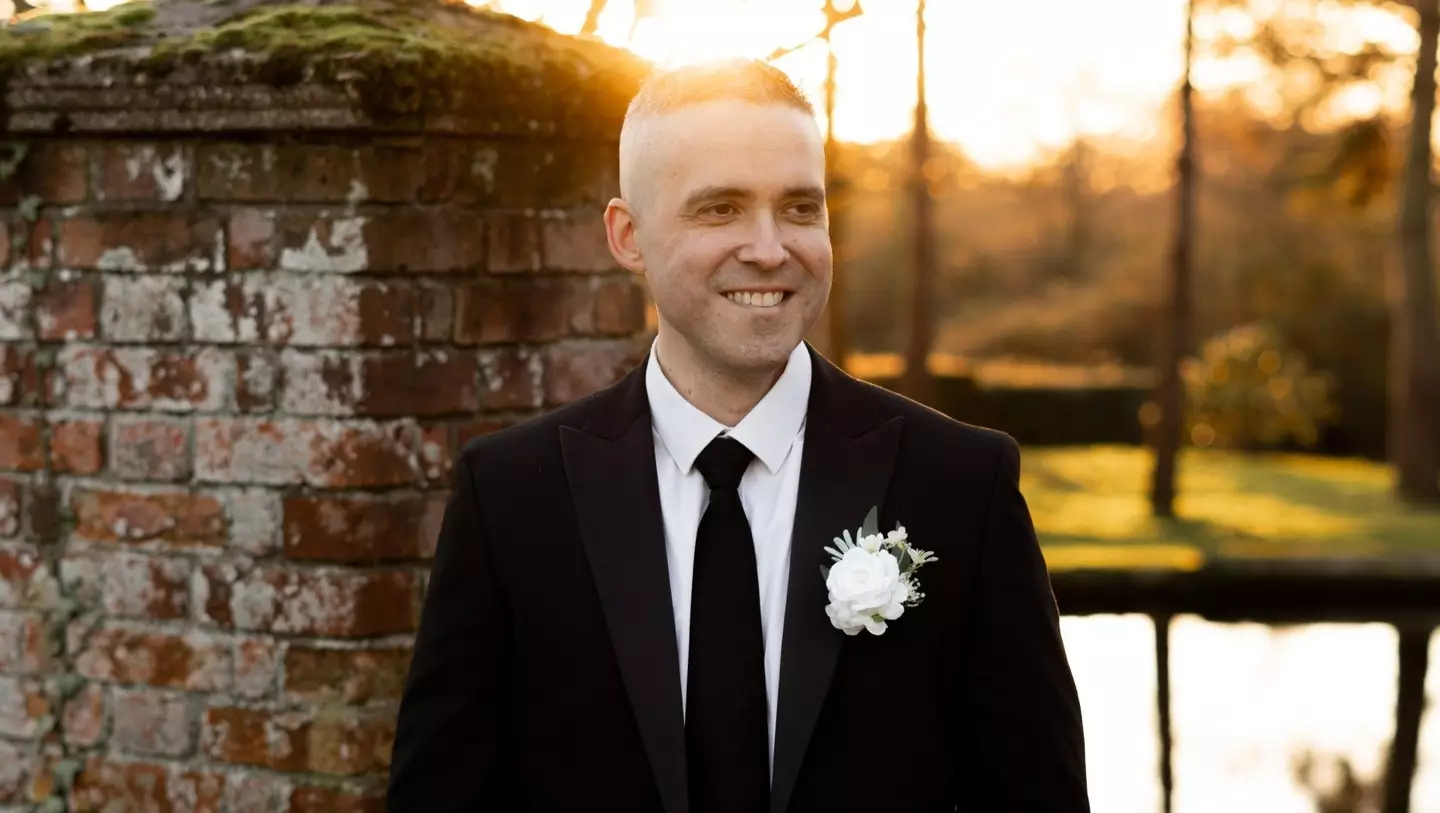
Stu seemed healthy (Cover Images)
Weeks after their vacation to Cornwall in August 2019, Stu was diagnosed with stage three melanoma, a type of skin cancer.
In his case, it had an ‘unknown primary,’ meaning it had no clear origin, a rare diagnosis that happens in just a handful of melanoma patients.
Doctors then removed 28 lymph nodes and part of Stu’s neck muscle in a major surgery after it was feared the cancer was spreading.
Medications and drug therapy using Dabrafenib and Trametinib then kept the cancer at bay for a while, giving the couple hope of the all clear.

The lump was found when Lauren performed a safety check (Cover Images)
Stu even went back to work and the couple adopted a dog, Nala.
However, their newfound peace was sadly short lived as in March 2023, a routine PET scan revealed the cancer was back with a vengeance, this time spreading to his liver and thigh and bumping his grade to stage four.
He was given powerful medication to help his immune system battle the cancer cells, but that failed just two cycles in and Stu was raced to hospital.
Medics found his liver was failing and diagnosed him with grade three immune-related hepatitis.
Lauren said: “Every time we got our hopes up, we were knocked down again.”
“But Stu never gave up. He always faced it with strength.”
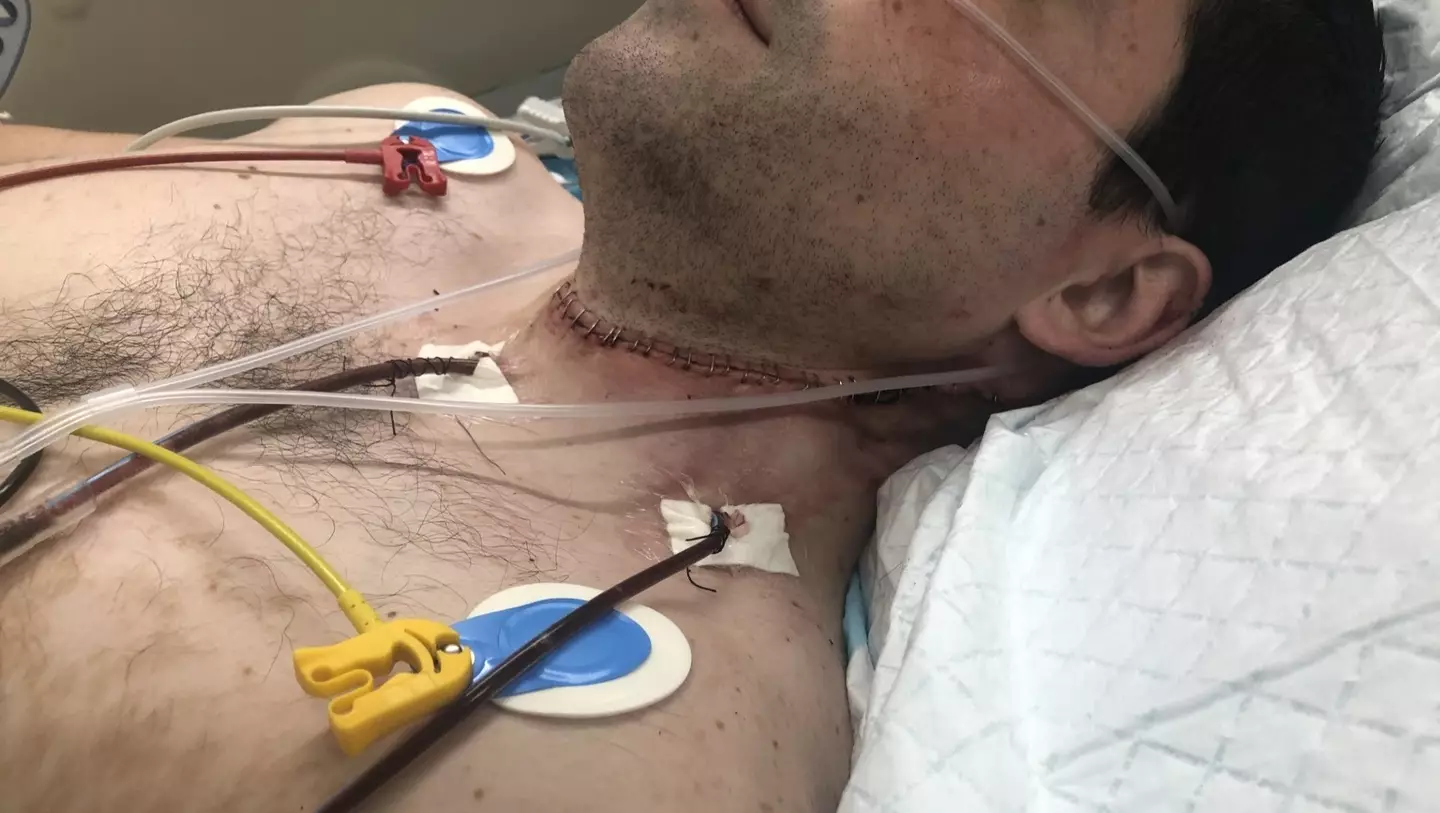
He’s had countless invasive surgeries and treatments (Cover Images)
Then in August 2023, the couple became engaged on their 10-year anniversary and brought their wedding plans forward to December 30 last year.
“It was one of the happiest days of our lives and one of the hardest,” Lauren added. “We didn’t know what lay ahead, but we knew we didn’t want to wait.”
Although targeted therapy gave them some promising results like tumor shrinkage, sadly Stu’s cancer built resistance to the therapy and spread again, this time to his lungs, lymph nodes and his brain.

The pair tied the knot last year (Cover Images)
He started chemotherapy three days a week, during which he suffered hair loss, fatigue and confusion, which all came to a head in March this year when Lauren came home from work and found her husband unable to communicate.
Once raced to hospital, another scan revealed he had a large tumor and a bleed on the brain which, although was mitigated with steroids, saw Stu suffer with aphasia, a condition which impacts his ability to speak.
When he eventually could speak again, his first words: “Ready to fight.”
The NHS successfully removed his brain tumor and a blood clot in a craniotomy which helped his speech to return.
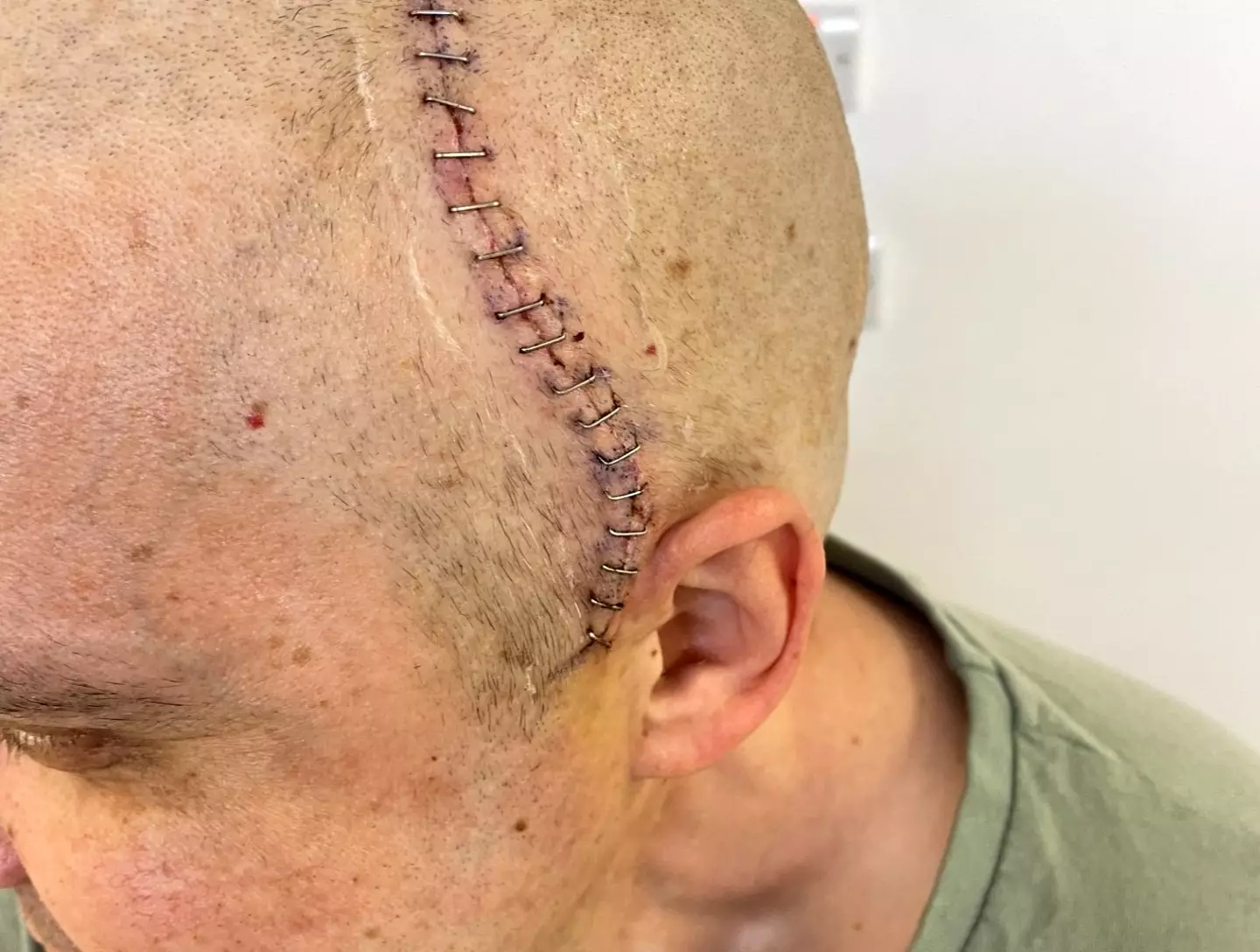
Stu has had a craniotomy to remove the brain tumor (Cover Images)
However, the cancer has continued to grow, and the pair have ran out of options in the UK to give Stu a fighting chance.
Lauren says the very ‘last option’ they have is in Israel – where a cutting-edge procedure and FDA-approved treatment called TIL therapy (Tumour-Infiltrating Lymphocyte therapy) is, but doesn’t come cheap at around £165,000 ($222,993).
The treatment involves removing tumor tissue, isolating immune cells to grow more in a lab and then reintroducing them in hopes they will combat the cancer.
“It’s not just about extending life, it’s about giving him a real chance,” Lauren added.
Donations can be made to their GoFundMe here.
If you’ve been affected by any of these issues and want to speak to someone in confidence, contact the American Cancer Society on 1-800-227-2345 or via their live chat feature, available 24/7 every day of the year.Featured Image Credit: Cover Images
Topics: Cancer, Health, NHS, Israel, UK News, World News
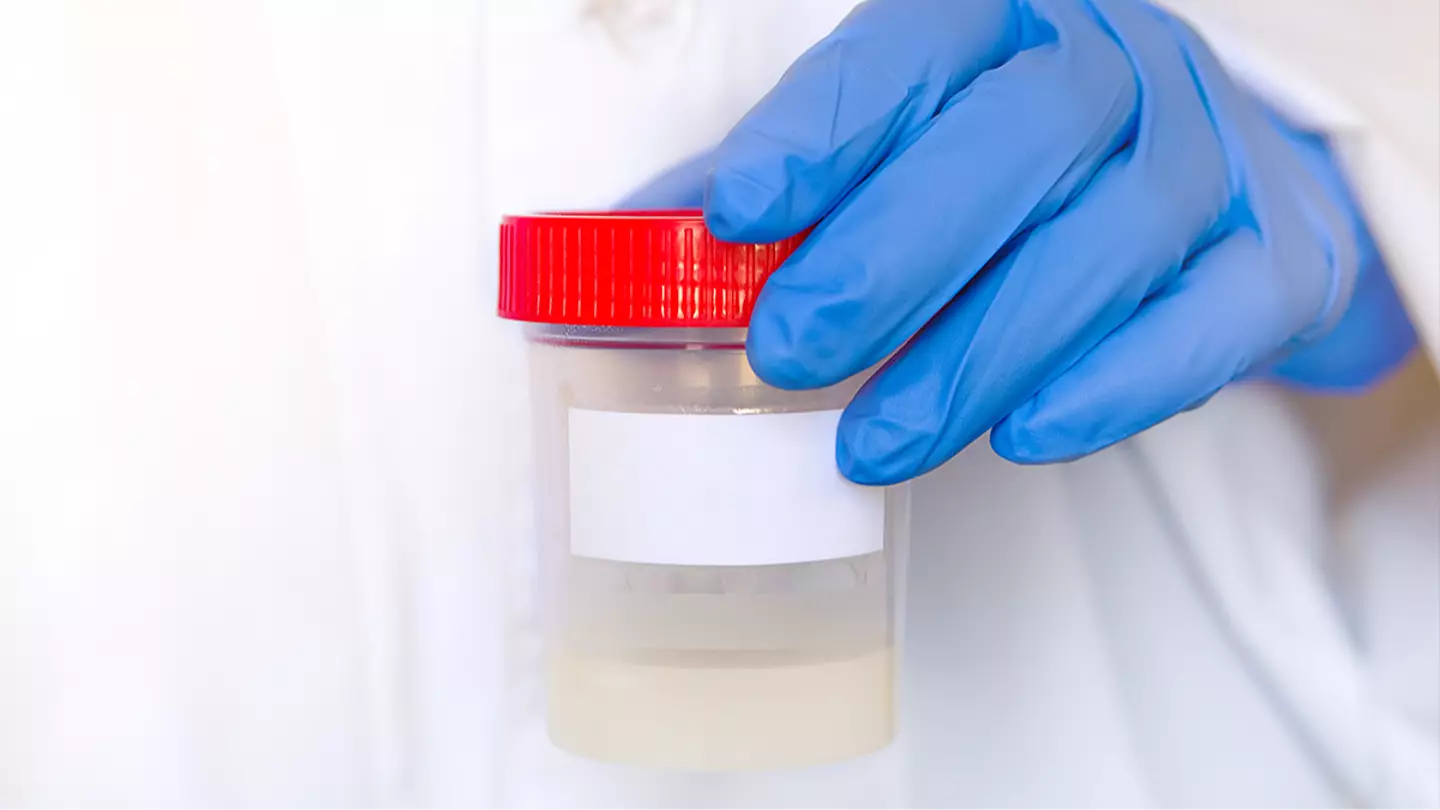
Published 11:47 25 May 2025 GMT+1
Man who unknowingly has rare cancer donated his sperm to over 60 families with heartbreaking consequences
The man made a significant amount of donations back in 2008
A man who was unaware that he had a rare cancer-carrying mutation donated sperm, which resulted in the births of 67 children.
Now, it has been revealed that 10 of those children have since been diagnosed with cancer, with 20 also having been found to have the same gene variant.
The case initially came to the forefront when two families contacted the fertility clinics to reveal that their children had developed cancer linked to a rare genetic variant called TP53.
According to Medline Plus, this variant can cause a genetic condition called Li-Fraumeni syndrome (LFS), which can increase the risk of developing particular cancers like leukaemia.
Those with the gene variant are advised to receive MRI body scans and scans of the brain regularly throughout their life.

This incident has resulted in questioning around the number of allowed donations (Getty Stock Image)
However, this is relatively new information as it was not known at the time of the donations, the majority of which were in 2008.
The Guardian also reported that the man was considered to be in good health.
Dr Edwige Kasper, a biologist from Rouen University Hospital in France, said: “I analysed the variant using population and patient databases, computer prediction tools and the results of functional trials and came to the conclusion that the variant was probably cancer-causing and that children born from this donor should receive genetic counselling.”
There is currently no international standard limit for sperm donation, but the bank where the man made the donations, The European Sperm Bank, has a limit of 75 per donor.
In the case of this donor, they added that more than 67 children had been conceived; however, it was not in their policy to disclose exact numbers.
They also said that the relevant clinics had been alerted.
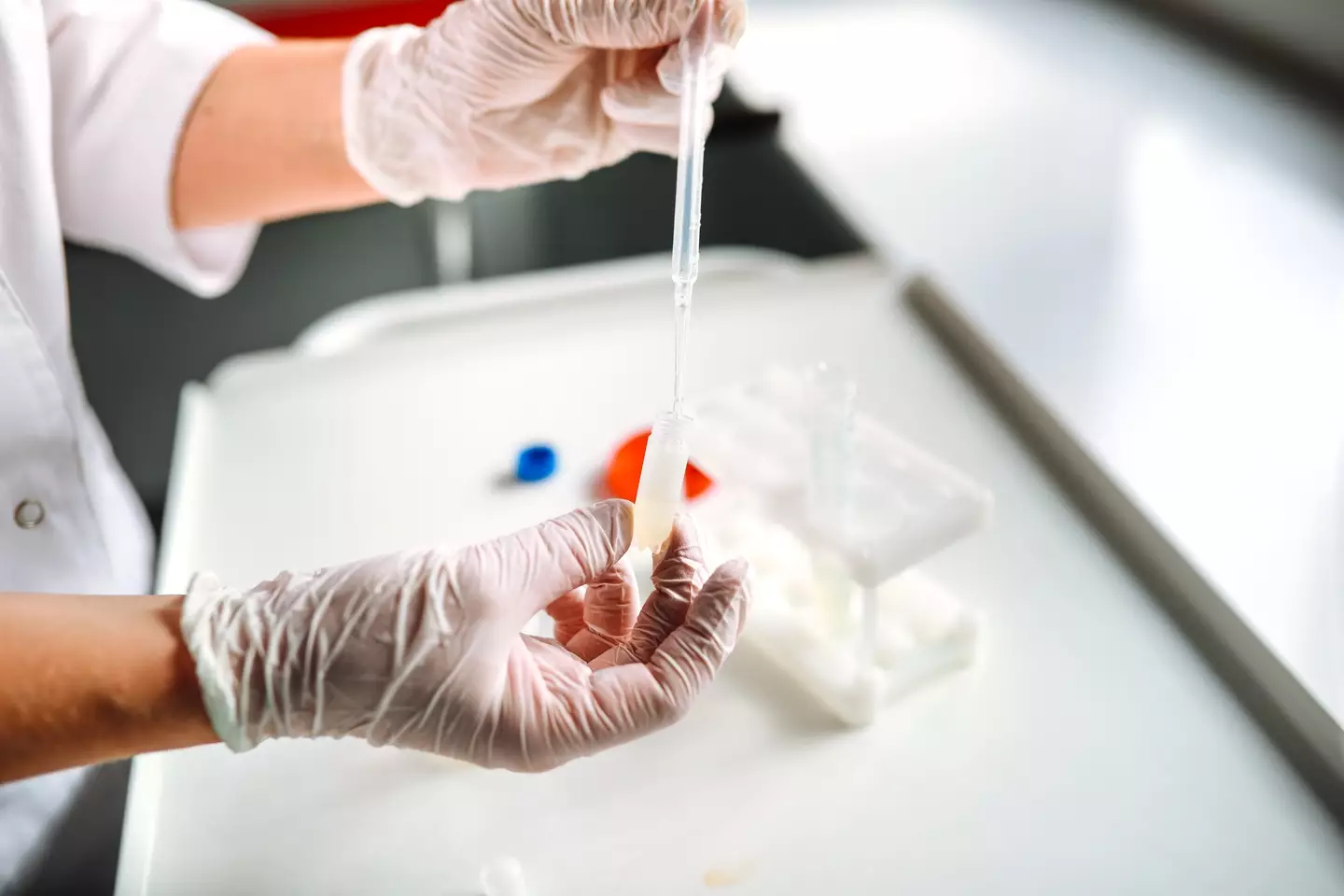
The man was unaware that he carried a cancer-causing gene (Getty Stock Image)
However, this case, resulting in many children being born between 2008 and as recent as 2015, has raised some concerns about the internationally agreed limits on the use of donor sperm.
Kasper spoke about the immediate need for change to prevent issues like this in the future, adding: “We need to have a European limit on the number of births or families for a single donor.
“We can’t do whole-genome sequencing for all sperm donors – I’m not arguing for that. But this is the abnormal dissemination of genetic disease. Not every man has 75 children across Europe.”
Nicky Hudson, a professor at De Montfort University in Leicester, reiterated that this particular incident has highlighted the risks associated with moving sperm across borders.
She said: “The important issues at stake here relate to the large number of affected children – which would be limited if only used within one country according to local limits – and the challenge of tracing the families, who can now span multiple countries.

At least 67 children were conceived with this man’s sperm (Getty stock images)
“Whilst these kinds of cases have thankfully been rare, we need to consider ways to limit the possibility of this scenario becoming more frequent in future by coordinating international practice. At the very least we need better systems for tracking donor usage and of informing recipients of this.”
A spokesperson for The European Sperm Bank told The Guardian that they were ‘deeply affected by this case’, adding that the donor had been extensively tested; however, ‘it is scientifically simply not possible to detect disease-causing mutations in a person’s gene pool if you don’t know what you are looking for’.
They added: “We welcome continued dialogue on setting an internationally mandated family limit and have advocated for this on several occasions. This is also why we have proactively implemented our own international limit of 75 families per donor.”
UNILAD has contacted The European Sperm Bank for further comment.Featured Image Credit: Getty Stock Image
Topics: Cancer, Health, News, World News

Updated 09:04 19 May 2025 GMT+1Published 08:53 19 May 2025 GMT+1
Joe Biden’s ‘aggressive’ cancer diagnosis explained as Trump and Obama speak out
The former president has been diagnosed with prostate cancer with the highest Gleason score
Joe Biden’s ‘aggressive’ cancer diagnosis has been explained as former presidents issue well-wishes.
On Sunday (May 18), the office of the 82-year-old and former president released a statement, confirming Biden has been diagnosed with prostate cancer which has spread to the bones.
Biden’s reps confirmed the former 46th president of the United States was seen by medics last week for urinary symptoms who found a new ‘prostate nodule.’
The statement added: “On Friday he was diagnosed with prostate cancer, characterized by a Gleason score of 9 (Grade Group 5) with metastasis to the bone.
“While this represents a more aggressive form of the disease, the cancer appears to be hormone-sensitive which allows for effective management.
“The president and his family are reviewing treatment options with his physicians.”

Biden’s office has confirmed the diagnosis (Bruce Glikas/WireImage)
What is prostate cancer?
According to the American Cancer Society, prostate cancer is the most common cancer in men in the US other than skin cancer, affecting around one in eight men.
The Mayo Clinic describes it as a ‘growth of cells’ that start in the prostate, a small gland found just below the bladder that produces semen.
It is usually detected early and grows slowly, with the clinic adding that most people diagnosed with prostate cancer are ‘cured.’
Essentially, many men can live with it for decades without needing treatment, though symptoms don’t always appear until the cancer is already developed and advanced.
Symptoms include needing to urinate more frequently, difficulty in peeing, straining or taking a long time while peeing, weak flow, and/or blood in urine or in semen, according to the NHS.
Signs that it may have spread further include bone and back pain, a loss of appetite, testicle pain and weight loss.

Prostate cancer affects the male reproductive system (Getty Images)
What is the Gleason score?
The Gleason score is used by medics to grade prostate cancer, according to Cancer Research.
The grade infers how much the cancer cells look like normal cells and how likely they are to grow or how aggressive they appear.
There are five grade groups with Grade Group 1 considered the least aggressive while Grade Group 5 is the most.
As Biden has a Gleason score of nine, he’s in the highest category, meaning the cells look very abnormal and is likely to grow quickly.

Biden with his grandson, Beau and wife, Jill, after his farewell address from the White House in January (Mandel Ngan – Pool/Getty Images)
What does the diagnosis mean for Joe Biden?
Biden presented to doctors with one of the most common symptoms of prostate cancer, urinary issues, though it appears the cancer has already spread to his bones.
While it is ‘not uncommon’ for older men in their 80s to be diagnosed with prostate cancer, Biden’s Gleason grade indicates it is ‘most advanced than most men would encounter’, Dr Ryan Clearly, a urologist at MedStar Health told the BBC.
Although Biden’s exact case is unknown, Dr Clearly added: “Generally about a third of patients will still be alive after five years of metastatic prostate cancer.”
Doctors also said Biden’s cancer is hormone-sensitive, meaning they can effectively ‘manage’ his prognosis by taking medications that block or lower the amount of hormones in the body to prevent further growth.
Dr Jamin Vinod Brahmbhatt, a urologist at Orlando Health Medical Group, told the news outlet that while such treatments are not ‘curative’ to the cancer, there are ‘more medical options to stabilise the patient and control the cancer, but it never gets rid of the cancer completely.’
Biden and his family are said to be reviewing treatment options.

Obama and Trump have both issued statements (MANDEL NGAN/AFP via Getty Images)
What has Donald Trump and Barack Obama said about Biden’s cancer?
The 44th POTUS, Barack Obama, issued a statement after hearing the news.
He wrote in a post on Twitter: “Michelle and I are thinking of the entire Biden family.
“Nobody has done more to find breakthrough treatments for cancer in all its forms than Joe, and I am certain he will fight this challenge with his trademark resolve and grace.
“We pray for a fast and full recovery.”
Obama’s comment comes as Biden was passionate about tackling the cancer death rate while in office, following the death of his eldest son Beau who died of glioblastoma brain tumor in 2015.
Biden’s predecessor and successor, President Trump also sent a message of support, writing on Truth Social: “Melania and I are saddened to hear about Joe Biden’s recent medical diagnosis.
“We extend our warmest and best wishes to Jill and the family, and we wish Joe a fast and successful recovery.”Featured Image Credit: Win McNamee/Getty
Topics: Joe Biden, US News, Health, World News, Politics, Cancer, Donald Trump, Barack Obama

Updated 16:06 23 May 2025 GMT+1Published 09:04 23 May 2025 GMT+1
Boxer Georgia O’Connor dies aged 25 after claiming doctors ‘dismissed’ cancer symptoms for four months
Georgia O’Connor revealed she was diagnosed with terminal cancer just months ago, claiming ‘no one’ took her seriously
A professional boxer has died at just 25 after claiming doctors ‘dismissed’ her cancer symptoms for months.
Georgia O’Connor from Durham, UK, was a decorated Team GB amateur boxer at junior level, going on to win gold at the Commonwealth Youth Games in 2017.
The rising star revealed just in January this year that she had been diagnosed with ulcerative colitis, a chronic inflammatory bowel disease, and cancer that was tragically terminal.
Revealing her diagnosis on Instagram, she wrote at the time: “There’s really no easy way to say this, but I have cancer.

The young woman has died (Nigel Roddis/Getty Images)
“Now that’s out the way, it’s time to expose the absolute incompetent RATS that have allowed this to happen.”
O’Connor stated she was in ‘constant pain’ for 17 weeks and made several trips to hospital and doctor’s appointments.
She said she knew ‘something was seriously wrong’ and that she was already considered a cancer-risk due to her colitis and PSC (primary sclerosing cholangitis).
“But not one doctor f***ing listened to me,” she continued. “Not one doctor took me seriously. Not one doctor did the scans or blood tests I begged for whilst crying on the floor in agony.”

O’Connor revealed in January she had been diagnosed with cancer (Instagram/georgiaoconnor_1)
“Instead, they dismissed me. They gaslit me, told me it was nothing, made me feel like I was overreacting. They refused to scan me. They refused to investigate. They REFUSED to listen. One even told me that it’s ‘all in my head.'”
The youngster made the heartbreaking admission that not only had her cancer spread but doctors found potentially fatal blood clots in her lungs.
She continued to rant about the shortcomings of the NHS, adding: “They could have done something before it got to this stage.”
“They can say it’s terminal all they want. They can tell me I’m going to die. But after taking 17, SEVENTEEN weeks to even figure out what was wrong with me, why the f*** should I believe them?”

The boxing star in March this year (Jordan Peck/Getty Images)
Celebrating her 25th birthday a month later, O’Connor revealed in a space of a few months she had suffered a miscarriage and was diagnosed with incurable cancer.
“I have what people consider the worst disease known to man, but I’m still able to smile, laugh and be myself,” she penned.
O’Connor then tied the knot with her partner, Adriano, just two weeks ago, writing in her final post on Instagram: “09.05.2025. The day I married the love of my life.”
Responding to the devastating news, a spokesperson for the Newcastle upon Tyne Hospitals NHS Foundation Trust issued the following statement: “We are very sorry to hear the news about Georgia’s death and offer our sincere condolences to the family.
“We appreciate this a very difficult time, but when and if the family want to raise any concerns with us, we’d urge them to get in touch.”
Tributes have since been flooding in for the star, including from her former promoter, Ben Shalom’s Boxxer, who wrote: “We are heartbroken by the passing of Georgia O’Connor. A true warrior inside and outside the ring, the boxing community has lost a talented, courageous and determined young woman far too soon,” reports BBC.
“Georgia was loved, respected and admired by her friends here at Boxxer. Our thoughts are with her loved ones at this difficult time.”

Tributes have been flooding in (Nigel Roddis/Getty Images)
World champion Ellie Scotney, who was a buddy of O’Connor for a decade, described her as the ‘most beautiful human.’
“I was so blessed with not just a friend for 10 years, but a sister for life,” Scotney said.
“Even when life was on a timer, you never let anything dim that light of yours. A smile that never ever fades, and a heart that will forever live on in so many ways.
“There was nothing you couldn’t do, the world at your very feet no matter what room you entered.”
England Boxing also said O’Connor was a ‘gifted boxer’ and ‘beloved member of the amateur boxing community.’
If you’ve been affected by any of these issues and want to speak to someone in confidence, contact the American Cancer Society on 1-800-227-2345 or via their live chat feature, available 24/7 every day of the year.Featured Image Credit: James Chance/Getty
Topics: Cancer, UK News, Sport, Boxing, NHS, Health
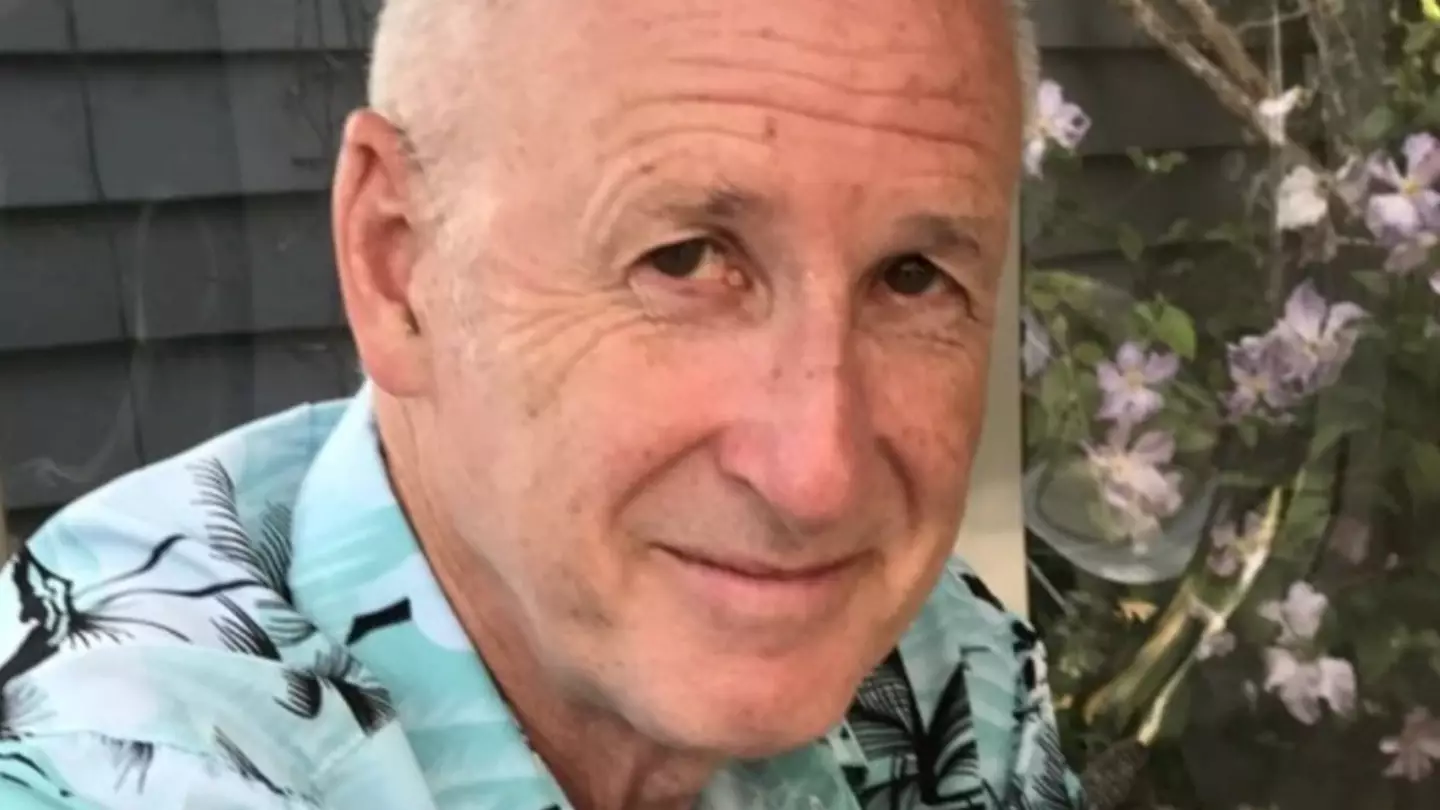
Published 15:58 23 May 2025 GMT+1
‘Fit and healthy’ dad dies two weeks on from cancer diagnosis after doctors dismissed symptoms as ‘constipation’
Ronnie was diagnosed with myeloma, which is a type of blood cancer
A stepdad sadly passed away from cancer, just weeks after his diagnosis.
Beth Hunt, 42, from the UK, lost her stepdad Ronnie Haston in April last year, two weeks after he was admitted to hospital with concerning symptoms.
Ronnie was 68 and had been suffering after suddenly becoming unwell weeks earlier.
Despite visiting the doctor, Ronnie’s symptoms were put down to constipation and he was offered a blood test two weeks later.
But unfortunately, while waiting for the tests, Ronnie’s condition deteriorated and his partner, Anne, took him to the emergency room.

Doctors put Ronnie’s symptoms down to constipation (SWNS)
At hospital, tests showed his kidney function had plummeted to just 14 per cent. Meanwhile, Ronnie had extremely high calcium levels.
“It was two weeks from admission to hospital until he died,” said Beth.
“He was fit and healthy, he had no underlying health conditions.
“It was a complete shock to us all. He didn’t get to enjoy one day of retirement with my mum or do any of the future they had planned together.
“It started with constipation, which the GP gave him laxatives for. He was really fatigued and had muscle pain.
“He just didn’t look right.”
Ronnie was diagnosed with myeloma, a form of blood cancer, but sadly died after becoming unwell with pneumonia.
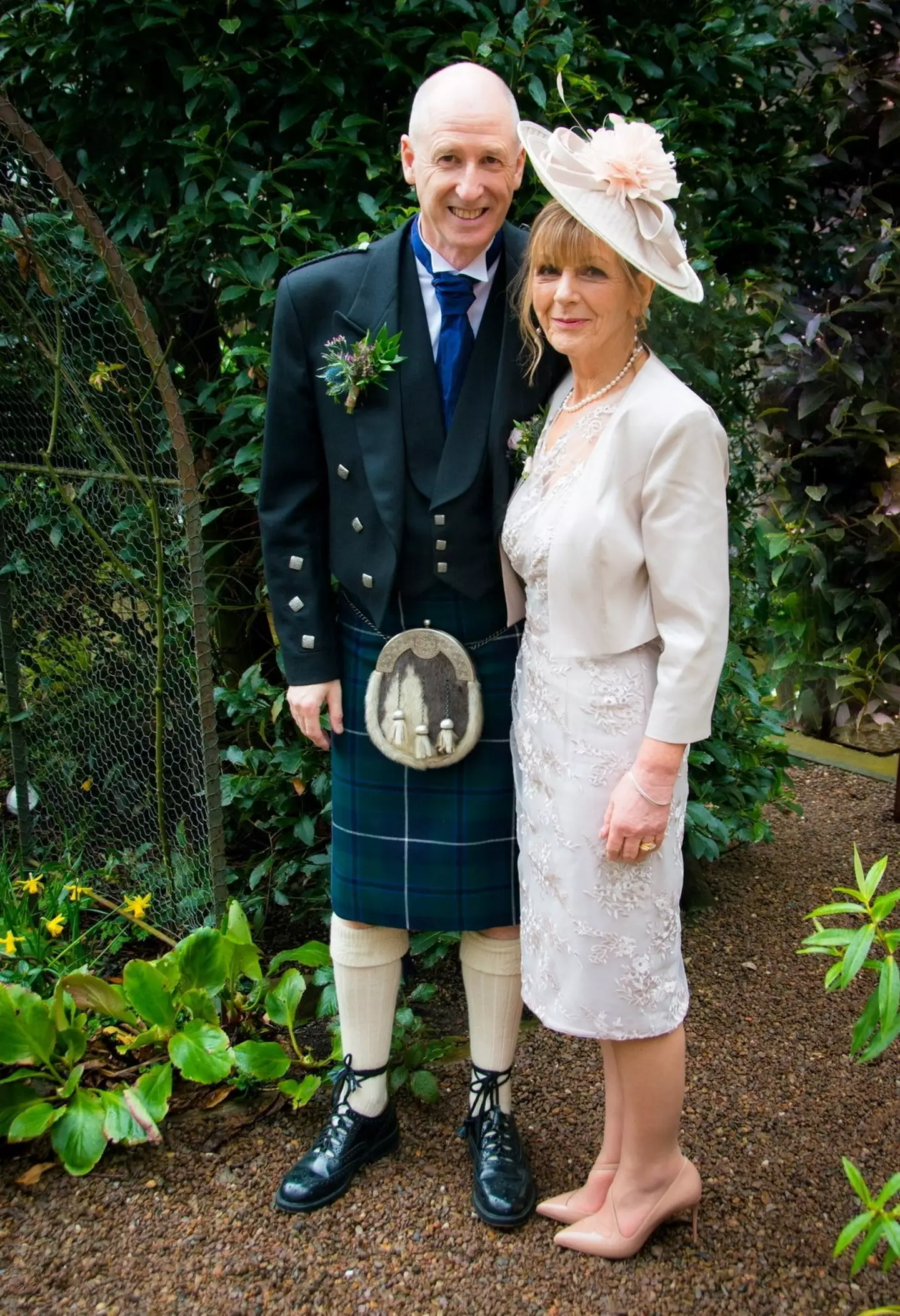
Ronnie and Anne (SWNS)
“They’d said he would start chemo and they had a full plan,” said Beth.
“They said he would be a good candidate for a stem cell transplant.
“He ended up having two lots of chemo whist very unwell with pneumonia and then two days later he died.
“He pretty much went into multi-organ failure. It’s shocking, completely shocking.
“It’s not people’s fault, it’s the system’s fault. The catalogue of errors, the wait.
“We kept saying, ‘He needs a blood test’, but he couldn’t get a blood test for two weeks.
“In this day and age how is that acceptable?
“If somebody is unwell, you need the blood test now. Even in hospital, it was all too little too late.
“The big thing for me is educating GPs. The symptoms of myeloma are sometimes non-descript and not obvious.
“You could put them down to muscle ache and being tired, but these should be red flags for a GP, especially in someone with no underlying conditions and having never been to a GP apart from with cellulitis from mosquito bites.
“If Ronnie hadn’t been so unwell by the time he got into hospital, he would have been in a better position to fight it.”
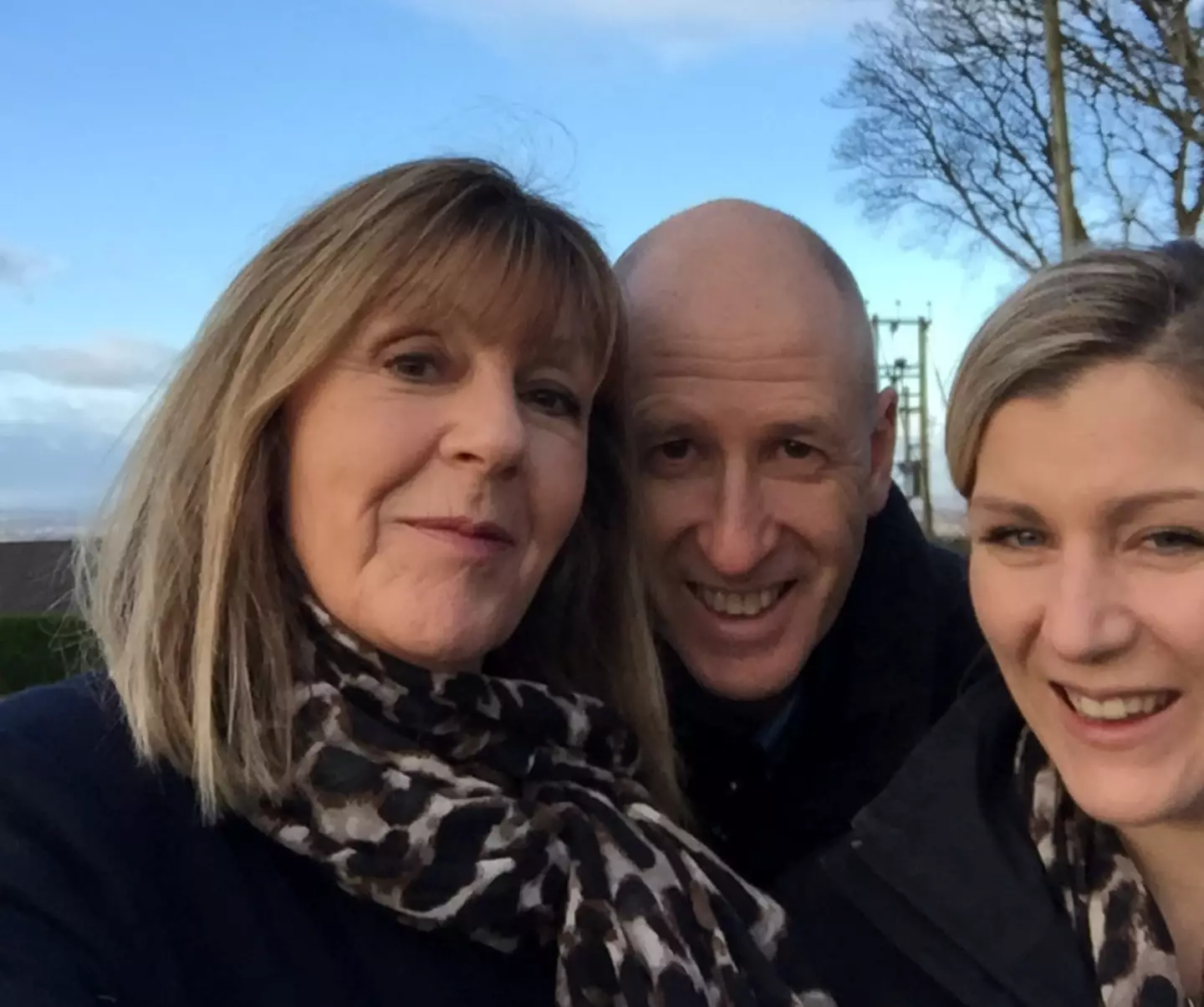
Ronnie with Beth and Anne (SWNS)
Beth will be running the Edinburgh Marathon in memory of Ronnie, raising money for Myeloma UK.
“I signed up to the Edinburgh Marathon on the evening of Ronnie’s funeral,” she said.
“When I ran a 10-mile eight years ago, mum and Ronnie were my biggest supporters.
“They ran across Edinburgh to meet me at as many points as they could.
“It’s my first marathon, but when I decide to do something I do it.
“I know I can do at least half but I’ll probably have to push through the last six miles.
“I think of Ronnie and my mum when I run – the last year without him has been awful for her.
“If she can wake up without him and can put one foot in front of the other then I can take it one step at a time too.”
Beth paid tribute to Ronnie, who had been part of her life since she was 19.
“You don’t realise the impact someone had until you lose them,” she said.
“He was a gentle man. He was always someone you could lean on. He’d never judge, he’d always support you and just show up.”
You can visit Beth’s JustGiving page here.Featured Image Credit: SWNS
